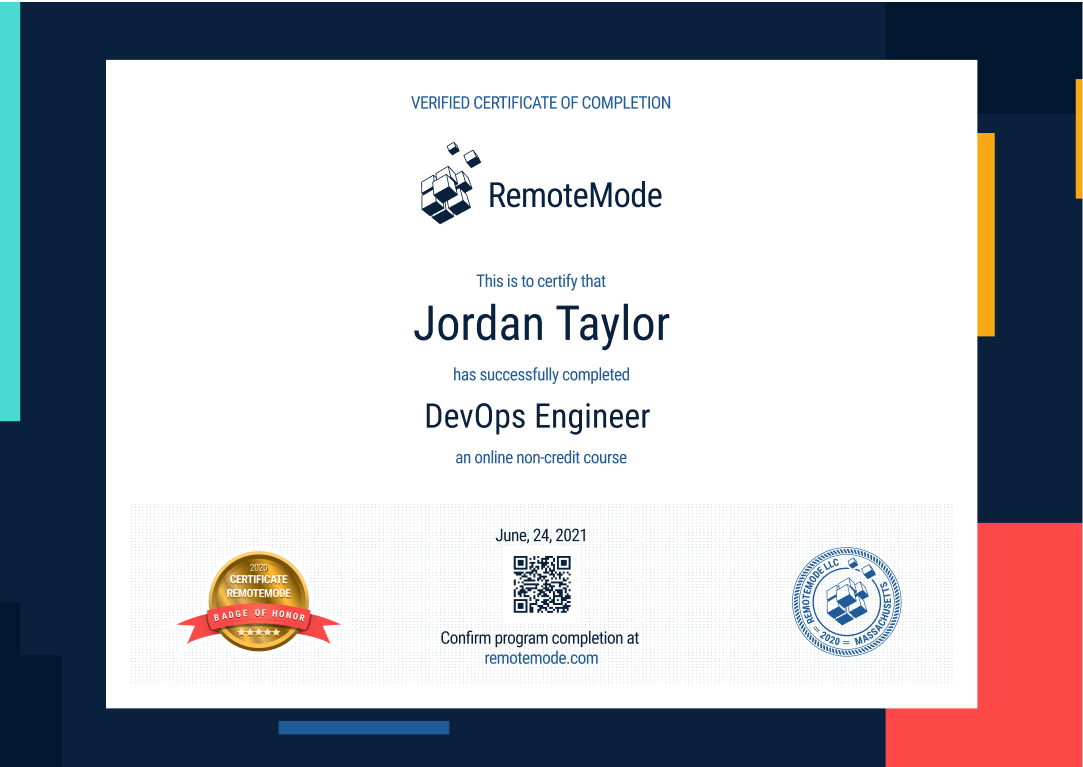Become a .Net MVC Developer
Develop software utilizing Microsoft .Net MVC framework technologies and languages. Explore front-end and back-end techs to build web apps.
- 8 month program
- 298 lessons
- 6 hr/week
- 199 hours



Mission Forecast for .Net MVC Developer
Landing Zone
All over the world hundreds of thousands of companies and start-ups use Microsoft ASP.NET systems to manage information technology. Up to 6 million programmers work with .Net technologies. According to the statistics of Linkedin.com, in the USA there are 34,000 jobs open for .NET Developers. Lots of companies write down .NET skills in the top-5 required competencies. ASP.NET Developers were added to the projected 22% job growth statistics for the next decade. It is expected to get more than 8,000 new jobs by 2029.
Mission Objective (Who’s Hiring Right Now)
.Net MVC Developer Overview
During the last fifteen years, thousands of web apps were based on .Net MVC. Working as a .NET MVC Developer your main responsibilities are:
- + 8 Month Courses
- + 6 Hours/Week Self-study
- + 298 On-demand Lessons
- + 199 Hours of training materials
- + Certificate
- + Practise on Topical Real-life Project
- Create small websites for enterprise web applications.
- Support and improve existing applications.
- Co-work with front-end developers.
- Analyze requirements and design new functionality.
- Troubleshoot and solve system problems.
- Make high-quality applications.
Prepare for Liftoff
ASP.NET Core 3.1 MVC
ASP.NET Core MVC is a powerful framework for employing the Model-View-Controller architectural pattern to create online apps and APIs. Plunge into this course and discover everything you need to know in order to develop your own custom ASP.NET Core MVC applications.
About the Course
This material compiles a series of tutorial videos that teaches ASP.NET Core MVC web development with controllers and views. Moreover, this course provides learners a hands-on approach to the subject with step-by-step program examples that will assist them to learn and put the acquired knowledge into practice.
Presented in seven chapters, the course intends to develop course takers’ understanding of the evolution of ASP.NETCore before looking at the updated files and folder structure.
Who is this Course for?
This course is open to anyone new to ASP.NETCore and who knows about ASP.NET and would like to take the first step to understand what differs in ASP.NETCore.
Moreover, this course is also designed for any experienced developer who has vast experience in working on Asp.Net web forms applications, as well as for individuals with a solid understanding and grasp of Asp.Net Web forms, C# OOPs, Ado.Net DataReader or Datasets, and MS SQL server query writing.
Ultimately, this course is open to any individual who wants to learn the most recent changes with Microsoft’s newest framework, including those who want to learn how to architect professional websites.
Course Prerequisites and Skills to be developed
A core of must-have technical skills and experience are expected to be possessed by the course takers. This set of skills/experiences includes:
- three to six months of C# experience
- SQL fundamentals
- HTML and JavaScript familiarity
At the end of this course, learners are expected to demonstrate the following skills and knowledge:
- Create a web page
- Develop a real, production-ready web application
- Understand the basics of Asp.Net MVC
ASP.NET Core 3.1 MVC Overview
Course takers better brace themselves for a deep dive into a framework that will power their web pages and elevate their skills in developing web pages to a few notches higher. These technical tutorials are presented in seven installments. The following details the topic for each chapter and their specifics.
Part 1: Project Creation – the first installment of the series introduces learners to the program’s framework, creating a project, middle ware, project creation, and organizing code.
Part 2: Repository Pattern – this section presents in detail the repository pattern, as well as implementing the repository pattern.
Part 3: Category and Frequency CRUD – After discovering the history and fundamentals of ASP.NET Core, course takers will be taught how to build a small book list application with CRUD operations as this chapter focuses on leading learners to understanding category CRUD, creating category API's, partial view buttons, and frequency CRUD.
Part 4: Service CRUD and Homepage – delving deeper into the course, this section revolves around service CRUD, the Service get action, post edit service, and the home page.
Part 5: Orders and Shopping Cart – in this section, learners will be made to understand more about details, the shopping cart, cart view part, and a summary action and view.
Part 6: Admin Registration – this chapter takes a close look at admin registration, adding users repository pattern, order management, and order details.
Part 7: Authorization and Deployment – capping the course, the final chapter of the course drives learners to an in-depth understanding of important concepts including authorization, stored procedures, bonus content, data seeding, and deployment.

Mission control
- Study at the course with experienced mentors and tutors
- Take part in Virtual lab projects to upgrade your portfolio
- Monitor your results at Dashboard and compete with other students
- Use Activity Tracking Log to control your progress
- Take a step closer to your job of dream with interview prep and upgrading SV
In Collaboration with
Chart your trajectory (298 video 97 hours)
Certificate of Completion
- Certification recognized by industry companies
- Real project from virtual labs
- The program built on 100% self-study
- Course videos and subtitles
- Practical quizzes
- Mentored by high-class specialists

Grow into a .Net MVC Developer
Develop software utilizing Microsoft .Net MVC framework technologies and languages. Explore front-end and back-end techs to build web apps.
Learning program
- 8 months duration, 6 hours per week
- 298 lessons, 199 hours
- 100 % flexible timetable
Virtual lab
- Real projects
- GitHub portfolio
- Experts feedback
Career Services
- Interview prep
- SV writing
- Filling LinkedIn profile
Request More Information
View pricing and financing options